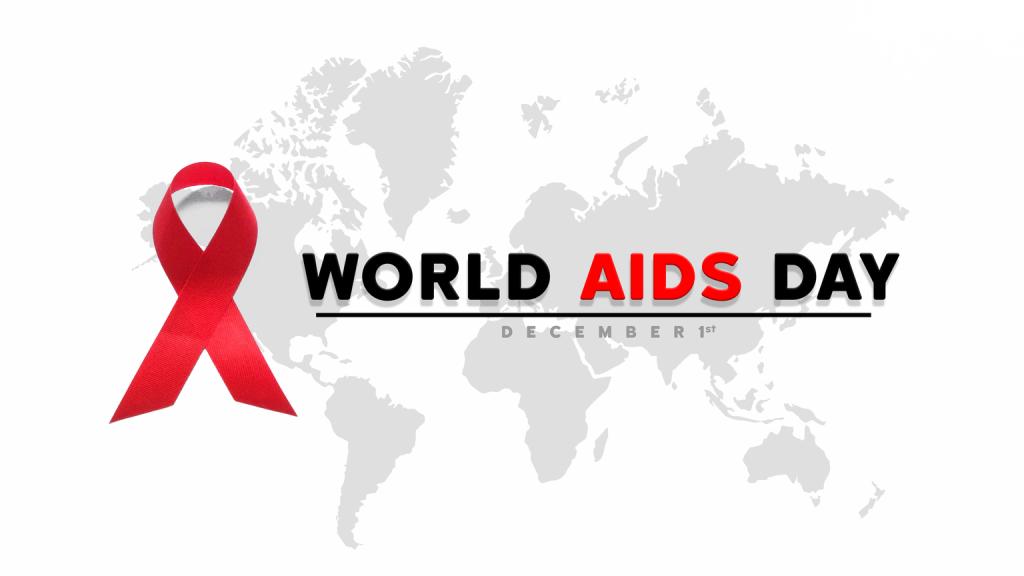World HIV/AIDS Day: progress made yet challenges remain
World HIV/AIDS Day is an opportunity for the whole world to come together to reflect on the progress achieved in the fight against HIV and to reiterate the importance of striving towards ending the pandemic through both prevention and the treatments which are now available. Indeed, HIV is still a global challenge today, as millions of people are living with the virus and many more are still at risk. Moreover, this event draws attention to the inequalities and barriers that prevent equitable access to treatment and prevention, underlining the pressing need for collective efforts to eradicate stigma and ensure an HIV/AIDS-free future. With this in mind, it is important to focus on the efforts to find an effective vaccine, knowing that the lasting and sustainable end to any pandemic depends on the availability of a vaccine, as the Covid-19 pandemic has recently taught us. It is also important to remember that those infected with HIV have a greater need to prevent dangerous concomitant infections and, therefore, vaccination is essential given their potential immunocompromised status.

World HIV/AIDS Day is celebrated on 1 December each year, a time to reflect on the advancements made in the fight against HIV, but also to draw attention to the importance of further work to end the pandemic. Despite significant progress in prevention and treatment, HIV remains a global challenge.
Worldwide, millions of people are living with the virus and more are at risk of infection. Globally, by the end of 2023, an estimated 40 million people were living with HIV, and the pandemic has had a particularly devastating impact in some regions, such as Africa. In Africa, in fact, almost one in 25 adults (around 3.4% of the population) is infected, accounting for more than two-thirds of people living with the virus worldwide. In Italy, 2,349 new HIV diagnoses were registered in 2023, an increase in diagnoses compared to previous years. The total number of people living with HIV in the country is estimated at around 140,000, but the situation may be even more serious than the official data show, especially in terms of early diagnosis.
In recent decades, anti-retroviral treatment (ART) has dramatically changed the lives of people living with HIV. Thanks to combination antiretroviral therapy, HIV infection has become a manageable chronic condition that allows people to live long and healthy lives. By 2023, about 31 million people worldwide were receiving antiretroviral therapy, and this has contributed to a significant reduction in the number of AIDS-related deaths.
However, while therapy has prolonged the lives of people with HIV, it has also led to an increase in chronic comorbidities, such as diabetes, obesity and cardiovascular disease. In fact, people with HIV have a higher risk of developing heart disease, with a 2.2 times higher risk of heart attack or stroke than the general population. This is due to a combination of factors related to the virus itself, which causes chronic inflammation and immune dysfunction, as well as the side effects of certain antiretroviral drugs. Such conditions also make one susceptible to more severe sequelae in the presence of other concomitant infections. Hence there are specific vaccination recommendations for HIV-infected patients. Referring back to the guidelines of the individual scientific bodies for the safe implementation of the recommended vaccines in HIV-positive patients, we wish to recall a few basic concepts:
- HIV-positive patients are a risk category for several infectious diseases, some of which can be prevented with the currently available vaccines.
- If the HIV-positive patient is not in a state of immunodepression all vaccines can be used
- If the immunological state is compromised with a low level of TCD4 lymphocytes, live and attenuated vaccines are generally contraindicated
- Immunocompromised status may affect the duration of immunity, so the vaccine schedule may include booster shots, in contrast to immunocompetent individuals.
It follows that the HIV-infected individual during counseling for the correct preventive behaviour and therapy compliance must also be informed about the need to complete the vaccine schedule foreseen for his or her condition.
Another key barrier in the fight against HIV is stigma. Despite advances in treatment and awareness-raising, discrimination against people with HIV is still a real issue in many countries. According to a global analysis, almost half of the population in 42 countries manifested discriminatory attitudes towards people living with HIV. This stigma is also reflected in healthcare facilities, where about a quarter of people with HIV reported experiencing discrimination when seeking care, even for problems not directly related to HIV. Overcoming stigma is essential to ensure equitable access to care and to improve the quality of life of infected people.
In fact, the World Health Organisation (WHO) has set an ambitious goal: to end the HIV pandemic by 2030. In 2023, the WHO presented new guidelines to improve HIV management, with the aim of further reducing HIV transmission and improving the health of people living with HIV. One of the main recommendations concerns the adoption of early and continuous antiretroviral therapy, which keeps the virus at undetectable levels. This not only improves people's health, but also prevents the transmission of the virus to sexual partners, through the U=U principle (undetectable = untransmittable), which means that a person with HIV, with an undetectable viral load thanks to therapy, cannot transmit the virus. This is why stigma can constitute, together with the social divide, one of the main barriers to achieving the WHO targets.
With this in mind, it is important to keep a spotlight on the search for an effective vaccine, in the knowledge that the lasting and sustainable end of any pandemic in fact depends on the availability of a vaccine, as the Covid-19 pandemic recently taught us.
World HIV/AIDS Day is therefore a key moment to celebrate progress and reflect on the challenges still ahead; such challenges include: inequalities, barriers in access to treatment, and stigmatisation are still significant obstacles in the fight against HIV.
A global commitment, based on inclusive health policies and education, is required to ensure an AIDS-free future.
In conclusion, World HIV/AIDS Day serves as a reminder that although great strides have been made, the battle is not over. It is vital that we continue to raise awareness and work to ensure that all people, everywhere in the world, have access to adequate care, effective treatment and a future free of stigma and discrimination.
Stay linked to our website to ensure you will not miss any future updates.
Image: “Red AIDS awareness ribbon on white paper background. World aids day and healthcare and medicine concept”. © Depositphotos



